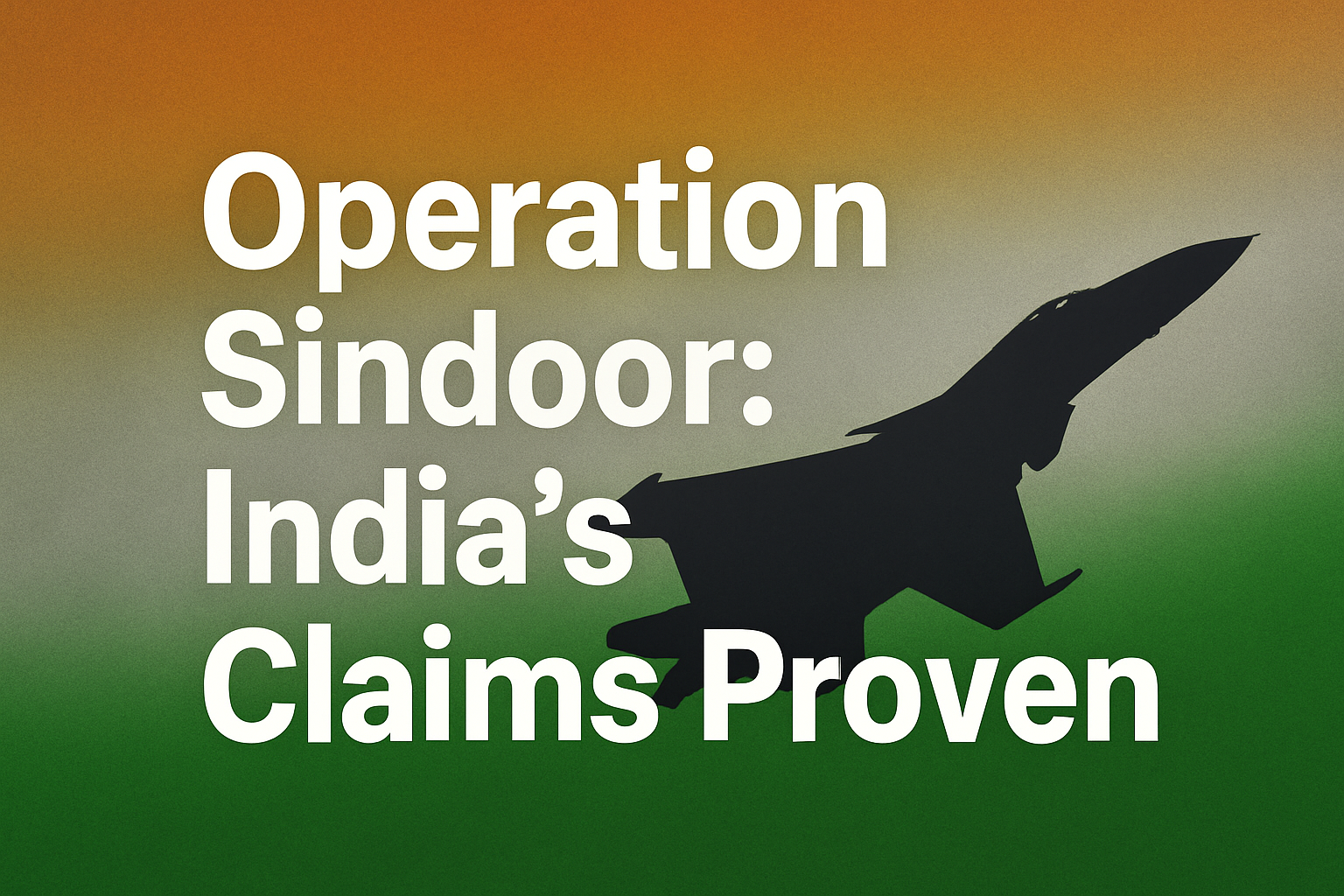
For months, Operation Sindoor has been at the centre of political and diplomatic debate. India launched the military action in May after the Pahalgam terror attack killed 26 civilians. The strikes targeted Jaish-e-Mohammad (JeM) strongholds in Bahawalpur, Pakistan, and terrorist camps across Pakistan-occupied Jammu and Kashmir. While the Modi government maintained that the operation was a success and firmly rejected any foreign involvement in negotiations, doubts persisted. Opposition leaders accused the government of compromising, while international commentary, particularly from U.S. President Donald Trump, created confusion about the ceasefire process.
Two recent developments, however, have cut through the noise. Pakistan’s own Deputy Prime Minister Mohammad Ishaq Dar admitted in an interview with Al Jazeera that India rejected all proposals of third-party mediation during the clashes. Separately, a JeM commander openly acknowledged in a video message that Masood Azhar’s family members were killed in the Bahawalpur strike. Together, these statements validate India’s narrative and disprove the claims of its critics.
Trump’s Claims and India’s Consistency
Donald Trump repeatedly asserted that his administration had brokered a ceasefire between India and Pakistan, claiming to have averted “a potential nuclear war.” His comments were seized upon by opposition leaders in India, who alleged that Prime Minister Modi had surrendered the country’s long-standing position of keeping issues with Pakistan strictly bilateral.
Dar’s remarks to Al Jazeera tell a different story. He confirmed that Pakistan did attempt to seek third-party mediation through U.S. Secretary of State Marco Rubio. However, the American official made it clear that India refused any outside involvement. Dar recounted that when the matter was raised again during a July 25 bilateral meeting in Washington, Rubio reiterated that India had maintained its bilateral stance without exception.
This admission strikes at the heart of Trump’s claims. Far from relying on Washington, India conducted its negotiations directly through military-to-military channels with Pakistan’s Director General of Military Operations. By refusing to allow outside mediation, India safeguarded a diplomatic principle it has held since Independence.
JeM’s Own Words Confirm the Strikes
The second revelation came not from any government but from Jaish-e-Mohammad itself. In a video uploaded online, JeM commander Ilyas Kashmiri admitted that Masood Azhar’s family members were “torn into pieces” by Indian missile strikes on May 7 in Bahawalpur. He named Azhar’s elder sister, her husband, a nephew, a niece, and several children among the dead.
For decades, Pakistan has sought to shield itself from international accountability by dismissing India’s claims of successful counter-terror operations. After Operation Sindoor, officials in Islamabad once again insisted that no damage had been caused by the strikes. Yet this admission from within Jaish’s own ranks demolishes that line. The fact that India’s missiles hit the inner circle of the JeM chief in his Bahawalpur stronghold demonstrates the reach and accuracy of the operation.
This public acknowledgment by JeM carries significance beyond the battlefield. It shows that India’s actions were not symbolic or limited to token targets but directly crippled Pakistan’s most notorious terror outfit.
Clearing the Fog
Taken together both admissions by Pakistan’s Deputy Prime Minister and by JeM itself offer clarity on two key fronts.
First, India’s diplomatic stance was never compromised. Despite Trump’s claims, New Delhi maintained complete independence in its dealings with Pakistan. The ceasefire was achieved through direct engagement, not through Washington’s intervention.
Second, India’s military success was real and tangible. The Bahawalpur strike eliminated members of Masood Azhar’s family and shattered the illusion of Pakistan’s terrorist safe havens. By forcing even JeM commanders to acknowledge the damage, India established the credibility of its armed forces beyond dispute.
Political and Strategic Implications
The impact of these revelations extends beyond settling old debates. For the Modi government, they vindicate the decision to act decisively after the Pahalgam massacre. The charges of political opponents, who argued that Operation Sindoor was exaggerated for electoral gain, now appear baseless.
Internationally, the revelations underscore India’s ability to stand firm under pressure. By rejecting mediation, New Delhi reinforced the principle that matters with Pakistan are bilateral and cannot be internationalised. At the same time, the successful strikes highlight a willingness to escalate when provoked, sending a signal to both Pakistan and the wider global community.
Final Take
Operation Sindoor was launched in response to a brutal terror attack. Months later, the narratives around it were clouded by denial, misinformation, and political accusations. Today, the truth is clearer. Pakistan’s deputy prime minister has admitted that India refused third-party mediation, while Jaish-e-Mohammad itself has acknowledged the losses it suffered.
These two developments validate India’s version of events. The government’s claims of military success and diplomatic firmness stand confirmed, not by Indian officials, but by voices from Pakistan itself. For India, this is not just vindication—it is proof that the combination of strength and clarity can withstand propaganda and expose the duplicity of its neighbour.
Operation Sindoor, once contested, is now a matter of record: India struck hard, stood firm, and prevailed.





















